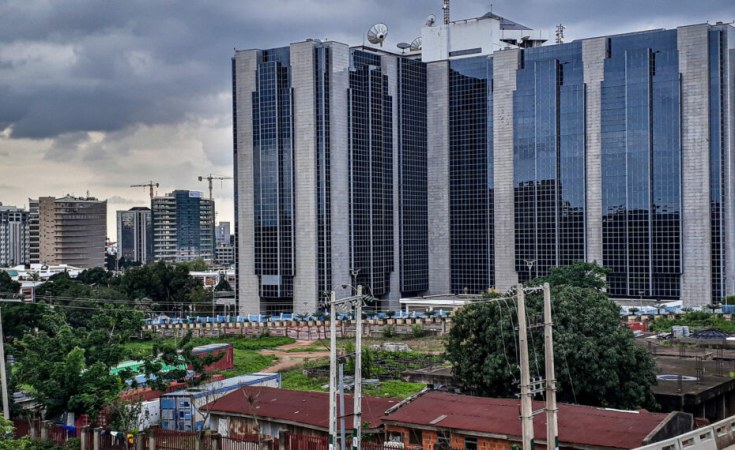The committee voted to retain the Cash Reserve Ratio (CRR) at 45 per cent for commercial banks and adjust the CRR of merchant banks from 10 per cent to 14 per cent
The Central Bank of Nigeria (CBN), on Tuesday, raised the interest rate by 200 basis points from 22.75 per cent to 24.75 per cent amid soaring inflation.
The central bank made this known after the two-day Monetary Policy Committee (MPC) meeting held between Monday and Tuesday.
According to the National Bureau of Statistics, the country's latest annual inflation rate jumped to 31.70 per cent from 29.90 per cent a month prior, primarily fueled by a continuous surge in food prices.
Olayemi Cardoso, the governor of the CBN, on Tuesday, disclosed that the MPC voted to adjust the asymmetric corridor around the MPR at +100 to -300 basis points.
He said the committee voted to retain the Cash Reserve Ratio (CRR) at 45 per cent for commercial banks and adjust the CRR of merchant banks from 10 per cent to 14 per cent.
The committee also voted to retain the liquidity at 30 per cent.
According to him, the committee's considerations focused on the current inflationary pressures and the need to anchor inflation expectations as well as ensure sustained exchange rate stability.
"These considerations underscore the importance of the ECB and its commitment to the price stability mandate and the need to urgently bring inflation under control to ensure that the purchasing power of ordinary Nigerians is restored in the short to medium term.
"Members noted the continued rise in headline inflation driven largely by food prices, because of supply shortages, and high cost of Logistics and Distribution. The committee, therefore, was of the view that addressing food insecurity is key to containing current inflationary pressures.
"On this note, members commended the ongoing efforts of the federal government towards addressing food insecurity. Some of these measures include the provision of various palliative releases of grains from the strategic reserves, distribution of seeds and fertilisers as well as farm implements for dry season farming. The committee therefore called for the full implementation of the federal government's agricultural policies and programmes to improve food supply and further advised for broader fiscal consolidation, particularly on the improvements of tax collection and tax to GDP ratio," he said.
Mr Cardoso said the committee will continue to monitor developments in the global and domestic economies to ensure that inflationary expectations are anchored to restore and sustain macroeconomic stability.
Projection
The CBN indicates that if the economic environment requires tightening, it will tighten their projections.
However, the apex bank expects things to begin moderating from around May, with a projection of significant decreases in inflation rates by the end of the year.
"From our perspective, the key thing for us as a Central Bank is to be fully focused on our core mandate. And that core mandate, basically, is to fight inflation and to ensure price stability. So there's no ambiguity in that and there's no compromise on that. We are very, very concerned that the purchasing power of the average Nigerian should be restored to the levels that they know it to be.
"What we are saying is that going forward, we expect that if the environment is such that requires us to tighten, we will tighten our projections, however, this indicates that things will begin to moderate from about May onwards, and the projection, as you may know, is that by the end of the year, we're expecting the inflationary rates to have come down significantly," Mr Cardoso said.
Regarding the impact on foreign exchange rates, the apex bank chief said that the bank has been moderating and expects this trend to continue.
He said the committee believes that the measures taken by the central bank will gradually bring the inflationary pressure under control.
"Of course, from the MPC standpoint, the MPC does make decisions based on economic data and of course, market conditions. So, as the next MPC which you know, has announced it will be made in May, they will obviously look at the existing variables and make a decision accordingly. I hope that will answer the question on tightening," he said.
In terms of economic growth, he said the CBN acknowledges that there might be a trade-off due to the tightening measures. However, he reassured that the tightening is not expected to be prolonged.
The committee expects the MPC to consider growth considerations adequately in its future decisions, ensuring a balanced approach to economic stability.
He announced that the next meeting of the MPC will be held on 20 and 21 May.


